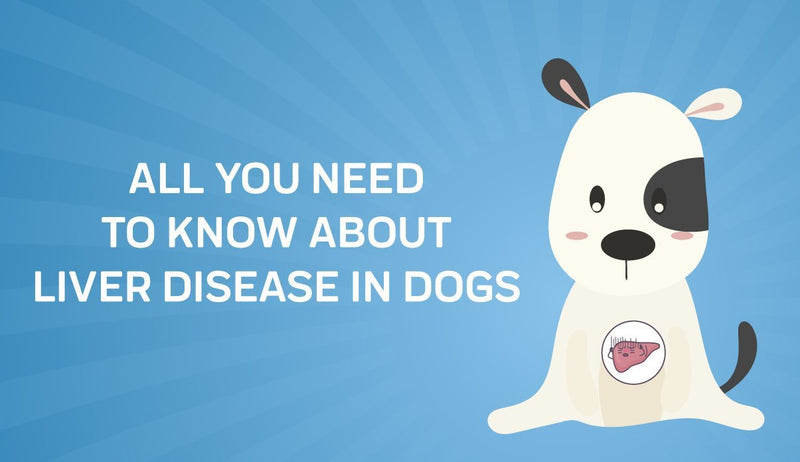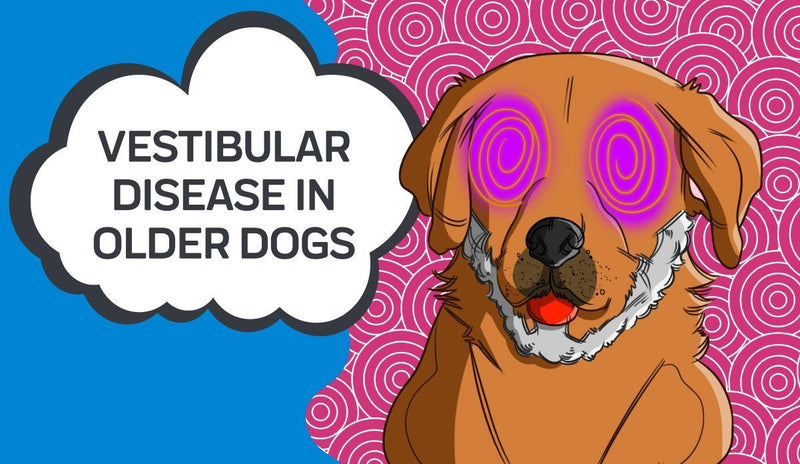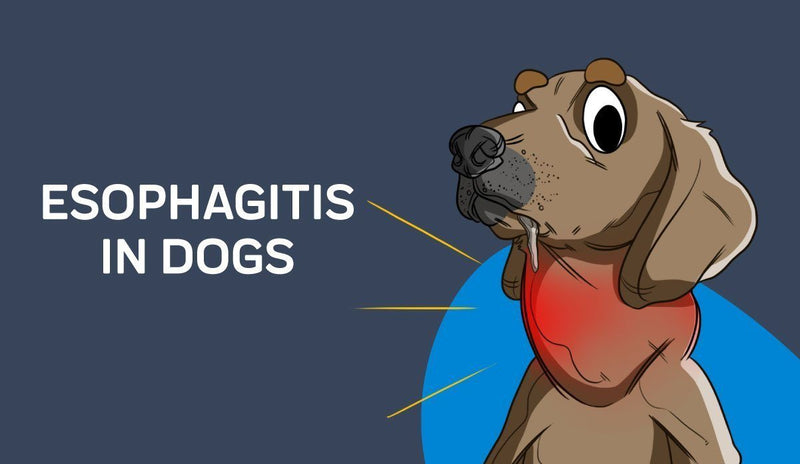First of all, pet parents love their pets very much, and that's the spirit of our company! There is a bond formed that is special, and many pets are like a part of the family. Liver disease is a concern that some pet parents have about their dogs. It is essential to understand as much about liver disease as possible, and that is why we have compiled as much information as we can for you to have as much knowledge as possible in your quest for more information about liver disease in dogs.
The term liver disease is the catch-all description of a liver problem that is progressive and chronic.
- Liver Disease in Dogs: What Is It?
- What Kinds of Liver Problems In Dogs Cause Liver Disease?
- What Causes Liver Disease in Dogs?
- Senior Dogs and Liver Disease: Signs and Symptoms
- Other Health Signs Of Liver Disease in Dogs
- Are There Things I Can Do To Prevent Or Slow Down Liver Disease?
- How To Get Liver Disease in Dogs Diagnosed
- How Is Liver Disease in Dogs Treated?
- Medications For Dogs With Liver Disease
- Diets For Liver Problems in Dogs
- Prognosis of Liver Disease in Dogs
- Is There Anything Else I Can Do To Help My Dog With Liver Disease
Liver Disease in Dogs: What Is It?
The term liver disease is the catch-all description of a liver problem that is progressive and chronic.
A dog's liver works similarly to a human's liver. It plays an imperative role in our pet's bodies just as it does in ours.
Here are the primary functions of the liver- It breaks down and metabolizes carbs, fats, and more
- It stores minerals, triglycerides, and glycogen
- It creates bile for essential breakdown of foods and other things ingested
Bile Duct Functioning
The bile duct is what transports the bile that the liver produces into the small intestine. After the bile has entered the small intestine, it will then start to break down fats and fat-soluble vitamins and minerals that are essential for the body. The bile duct has a very important function in the body of a pet.
Liver disease in dogs can be caused by a number of liver problems, such as liver cancer, infections of the liver, toxins, poisons, medications, Cysts of the liver, endocrine system diseases, Glycogen diseases, Idiopathic liver fibrosis, hepatic amyloidosis
What Kinds of Liver Problems In Dogs Cause Liver Disease?
Liver problems in dogs that can cause liver disease can be very confusing for pet parents. Obviously, we don't know everything about medical care for our dog. Thankfully, veterinarians are trained to know everything about pets and their health and pet parents can rely on them for answers and treatment. However, pet parents want to understand the health issues of their pets.
So, liver disease in dogs can be caused by a number of liver problems:- Liver cancer
- Infections of the liver
- Toxins, poisons, and medications
- Cysts of the liver
- Endocrine system diseases
- Glycogen diseases
- Idiopathic liver fibrosis
- Hepatic amyloidosis
Nodular Hyperplasia
Also, there are gallbladder diseases and conditions that can affect the liver. This is because the gallbladder and the liver work in connection with each other. They work together to process the bile that is required to break down fats and fat-soluble vitamins and minerals. So, if your pet has a gallbladder condition, it will be important to keep an eye on them for possible liver problems. It will be vital to notify the veterinarian of any issues that you notice so that it can be noted in your dog's medical records. Dogs with a history of gallstones should be monitored very closely.
Symptoms and signs of dog liver disease include, vomiting, Depression, Lethargy, Polyuria, Anorexia, Polydypsia, and Weakness
What Causes Liver Disease in Dogs?
Liver disease can happen to any breed of dog and at any age. It merely happens sometimes, and it usually cannot be predicted.
There are some liver conditions or other health problems that can cause liver disease in dogs to occur.
Some of the most common liver conditions and health issues that cause problems are:- Hepatic lipidosis (commonly known as fatty liver disease)
- Hepacutaneous syndrome (is a rare condition that usually accompanies diabetes)
- Cushing's Disease
These are some of the most common liver conditions that are diagnosed as liver disease in dogs as they progress. Your veterinarian will keep a close eye on any dogs that have these conditions.
Senior Dogs and Liver Disease: Signs and Symptoms
Although dogs can develop liver disease at any age, older dogs are at a higher risk of developing some of the dog liver disease issues that are seen. This is simply due to the process of aging that both humans and our furry friends have to go through.
Symptoms and signs of dog liver disease include:- Vomiting
- Depression
- Excessive lethargy
- Polyuria
- Anorexia
- Polydypsia
- Weakness
It is important to pay attention to the health of senior pets as much as possible. The aging process makes them at risk for health problems. Pet parents that notice some or all of the symptoms above should take their furry friend to the veterinarian as soon as possible. They will need to be evaluated by your trusted vet. It may be wise to get them in for an emergency visit at a veterinary clinic if you cannot reach your regular vet.
Some of the following issues can also be signs of impending liver failure in dogs, like Jaundice Seizures, Bleeding, and smaller than average stature
Other Health Signs Of Liver Disease in Dogs
There are some other health issues and signs that could point to your dog potentially having liver disease.
Some of the following issues can also be signs of impending liver failure in dogs:- Jaundice (yellowing skin and in the whites of the eyes)
- Seizures (associated with hepatic encephalopathy)
- Bleeding (often associated in dogs with cirrhosis and cholestasis)
- Smaller than average stature (dogs with liver shunts often have this)
There are things you can do to lower the risks of liver disease like keeping toxic chemicals, drugs, and plants out of your pet's reach, get infectious diseases treated right away to prevent liver damage, feed your dog high-quality foods and treats, get your dog annual veterinary exams, and ask for blood testing at yearly or semi-annual examinations
Are There Things I Can Do To Prevent Or Slow Down Liver Disease?

Pet parents need to remember that most liver disease in dogs is often not due to anything that they have done. It is a consequence of aging, hereditary issues, genetic conditions, and other factors that often cannot be controlled. Preventing liver disease, in most cases, is not possible. However, there are some things that you can do to lower the possibility that your dog will get liver disease. It can also help with reducing the chance of liver failure in dogs.
Things you can do to lower the risks of liver disease:- Keep toxic chemicals, drugs, and plants out of your pet's reach
- Get infectious diseases treated right away to prevent liver damage
- Feed your dog high-quality foods and treats
- Get your dog annual veterinary exams
- Ask for blood testing at yearly or semi-annual examinations
Pet parents can do their very best to keep toxic chemicals and plants away from their dogs. It is essential as some dogs are very playful and full of mischief. They just won't keep their noses and mouths out of corners or places that they aren't supposed to. Some dogs also like to chew anything that resembles food on the floor. Some toxic substances to look out for are any molds, blue-green algae, mushrooms, lilies, and ragwort. Some pet parents do not realize that lilies and mushrooms can sometimes be toxic to pets.
Getting infectious diseases treated right away may be able to prevent liver damage from ever happening. Certain infectious diseases that affect canines and damage their kidneys are leptospirosis and canine adenovirus. Leptospirosis is the infectious form of hepatitis in dogs. It is especially important to note that these infectious diseases can possibly be spread between dogs. If you have other pets in the home, it is especially important to get the infectious pet treated right away and perhaps keep them quarantined from the other dogs. As always, it is best to ask the advice of a veterinarian if this is a situation that you are dealing with presently.
Feeding your pet high-quality foods and treats is always ideal. It really can help them keep their entire body as healthy as possible. High-quality foods that are free of chemicals and pesticides are a great choice for pet parents worried about liver problems in dogs.
Regular veterinary exams are certainly quite vital to ensuring that your dog is as healthy as possible. Going to regular exams means that any potential liver disease in dogs can be caught as early as possible. Early diagnosis of liver cancer or other liver diseases can make a big difference in treatment options available and in possibly slowing the progression.
Asking for blood testing at annual vet visits is a wise choice. This is especially important if you suspect that your dog may have a liver condition or another health problem. Blood tests can detect any abnormalities in the blood that point to certain health conditions and alert the veterinarian so that they can make a diagnosis and create a suitable treatment plan.
If your veterinarian suspects that your dog has liver disease, they may order blood tests that consist of a CBC panel and biochemical panel
How To Get Liver Disease in Dogs Diagnosed
Finding out if your dog has liver disease will undoubtedly need to start with the veterinarian. A trusted vet that knows your pet will likely be the best place to go. This is because they are familiar with your dog and understand their past medical history well. The veterinarian will be looking for any noticeable issues such as a distended stomach, dehydration, jaundice, and other indicators of liver disease or liver failure in dogs. They may also try to feel around the liver area outside of the body to see if there is any enlargement or mass.
The vet will want to know about any strange behaviors or changes that you may have noticed. Make sure to let them know anything at all that you have seen that has been out of the ordinary. This helps veterinarians in their quest to pinpoint what could be wrong with your pet. It is essential to mention any changes in their stool or urine as it could help them in narrowing down the possible health problems. Behavioral changes should be mentioned as sometimes those are indicative of an underlying health problem.
If your veterinarian suspects that your dog has liver disease, they may order blood tests that consist of a CBC panel and biochemical panel. They will be checking your pet's blood for substances and enzymes that could indicate a compromised liver function. Other things that they may do are give your dog an x-ray, a CT scan, or MRI. They may do a combination of these tests. It is also possible that they will request a liver biopsy. This is when they get a sample of liver tissue and submit it for histopathological examination and culture examination. The biopsy procedure is invasive, and your veterinarian should tell you about the risks and benefits of going through with this procedure for your pet.
How Is Liver Disease in Dogs Treated?
Liver disease in dogs is treated based upon their individual health, type of liver disease, and other contributing factors. Your trusted veterinarian will let you know what kind of treatment they require and what type of medications you may need to give them.
Medications For Dogs With Liver Disease
Types of medications that are used will vary on the liver disease being treated. For example, prescriptions that may be given to dogs with liver cancer would be different than a dog that has cirrhosis. Some common medicines prescribed are NSAIDs, steroids, and cancer-fighting drugs that are approved by the FDA.
Diets For Liver Problems in Dogs
Your veterinarian will likely prescribe diet changes. This is because liver disease can be progressive and the liver works to break down fats and carbohydrates. The less work that the liver has to do, the better it is for your dog. The diet given to your dog will likely depend on their form of liver tumor, liver cancer, or liver condition. A lot of times, the diet will consist of low-protein and high-quality food. This is to allow the liver to do less work overall and still enable the pet to have enough protein in the body to process biologically the way that they need to. It will be vital to try and prevent your dog from experiencing nausea. This is to ensure that they get adequate nutrition as their bodies try to heal.
Prognosis of Liver Disease in Dogs
The prognosis of liver disease in dogs will be on a case-by-case basis. It is not something that is the same to each pet.
The veterinarian will be the best source to gauge your dog's particular prognosis. One of the top things that a pet parent can do is remain a constant source of affection and love in a dog's life. It is not easy to watch your precious dog go through a painful or uncomfortable health situation. Liver cancer, liver tumors, chronic liver disease, and other issues are complex and require a lot of attention from both pet parents and their veterinarian. Make sure to follow the veterinarian's instructions and do whatever you can to make them comfortable and happy as they deal with unpleasant treatments, symptoms, and issues in their illness.
One interesting thing about the liver is it is a very unique organ. Sometimes, it can recover far better than any pet parent or veterinarian ever imagined. The prognosis that your pet is given is not written in stone nor is it any type of guarantee. Some dogs that have liver cancer end up living out their full lives after successful treatment. All you can do is provide the love and support that your dog needs, follow the instructions of the veterinarian, and make sure to take any extra steps to make their lives a little easier!
Is There Anything Else I Can Do To Help My Dog With Liver Disease?
The well-being of your canine is super important to you. It is important to us here at Innovetpet, too! There are some natural options that you can give your dog that is going through kidney disease. Natural options are free of chemicals and pesticides and ensure that your pooch will not be getting sick from added chemicals. Pet parents may want to consider giving their pet CBD. This is because CBD is derived from hemp, is completely organic, and offers dogs healing benefits that can be quite powerful in increasing their quality of life.
CBD Oil For Dogs is an oil that is all-natural and has shown powerful benefits for health problems in dogs and cats that are free of side effects. Some of the benefits that have been proven in CBD are lessening of pain, treatment of nausea, lessening of inflammation, calming of anxiety, and much more. It can help pets that are dealing with painful symptoms of liver disease and without any concerns about side effects or getting high. There is no getting high with CBD oil as there is no THC. Your dog will simply be enjoying all of the benefits of the health-boosting ability of CBD.
Another option for dogs that like treats is CBD Hemp Dog Treats. These treats are available in a variety of flavors to please any pet. They are organic and all-natural and also allow your dog to enjoy something tasty in their diet that has absolutely zero added chemicals. It will enable them to enjoy the amazing benefits of CBD in the form of an organic treat that they will be able to eat and take pleasure in.
Is There Anything Else I Can Do For My Dog with Liver Disease?
All you can do is follow the advice of your veterinarian, look for ways to make their lives better, and just enjoy the time that you have with them. Dogs with liver disease may live a long number of years, and it is important just to enjoy your pet every single day and not worry constantly about what may happen tomorrow. Focus on living in the moment and make every day as good as you can for both yourself and your beloved dog.

















